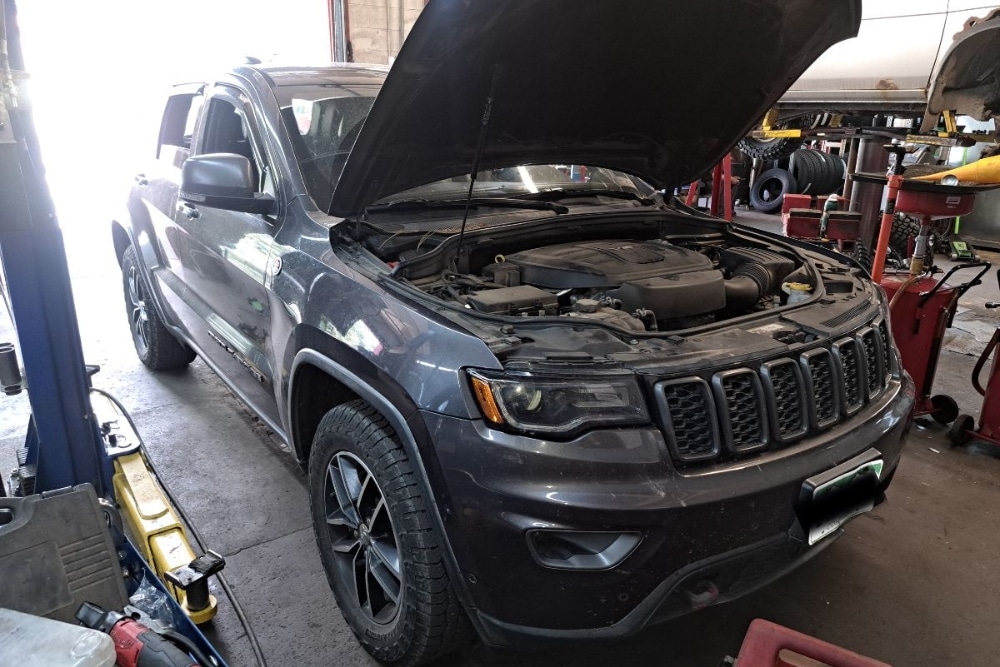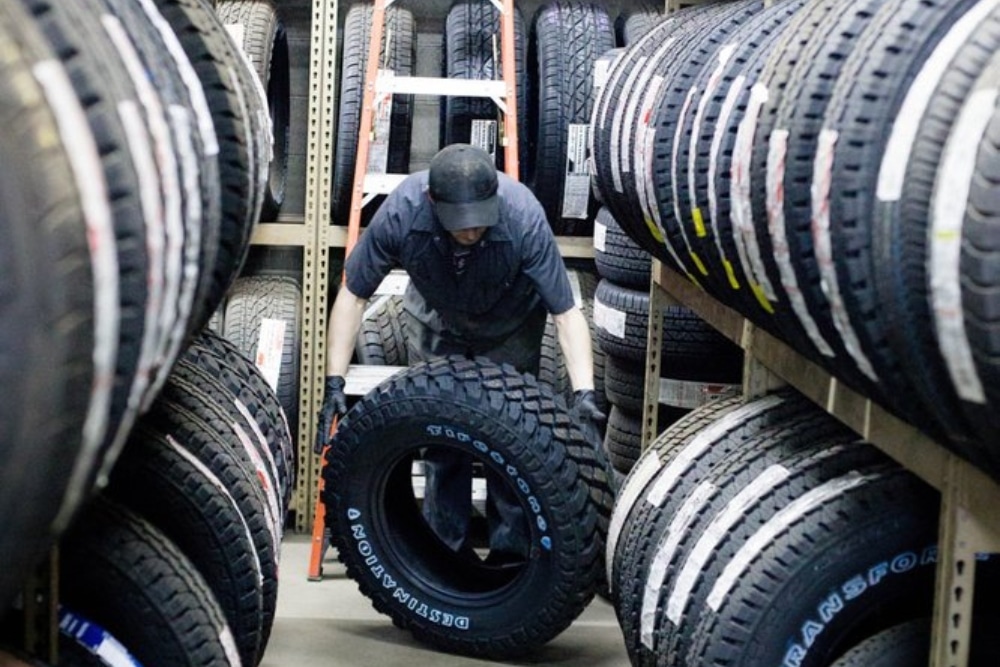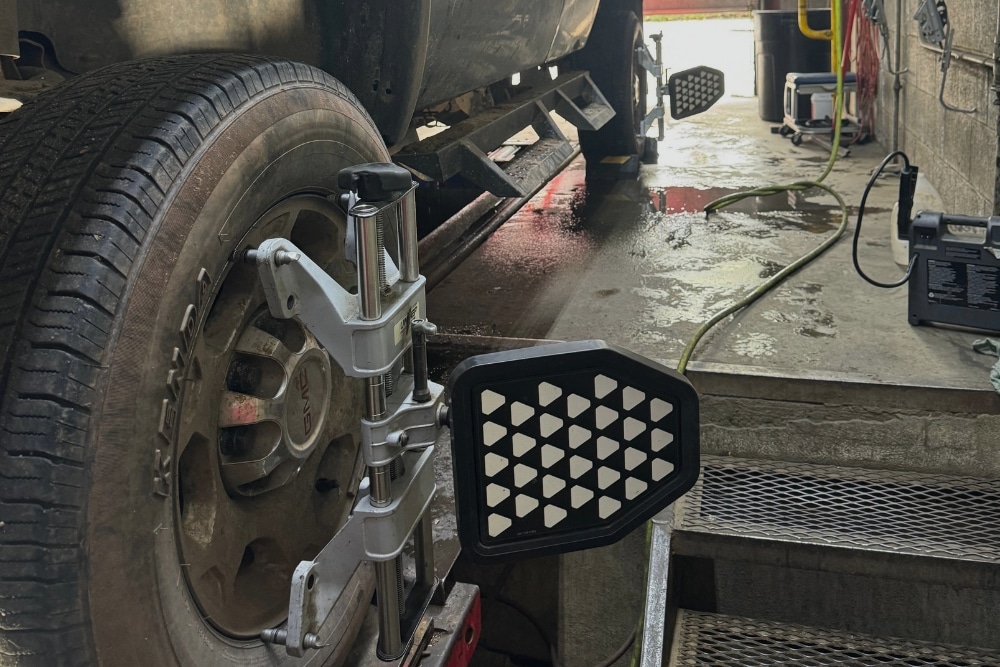It sounds harmless—“sludge.” But in reality, engine sludge is one of the most damaging contaminants your vehicle can face. It clogs passageways, traps heat, suffocates moving parts, and over time, it can ruin your engine from the inside out.
But here’s the good news: most sludge buildup is preventable.
If you’ve been searching for answers to what causes engine sludge, how to get rid of it, or whether an oil change can remove sludge, you’re not alone. Sludge isn’t just a rare problem. It’s one that can affect any driver, especially those who neglect regular oil maintenance.
Before you end up with costly engine damage or breakdowns, let’s explore what sludge is, how it forms, and how routine oil changes are your first and best defense.
What Is Engine Sludge?
Engine sludge is the thick, dark, tar-like substance that forms when motor oil breaks down and mixes with dirt, debris, fuel, coolant, and oxidation byproducts. Over time, this mixture clings to the inside of your engine, especially in areas with lower circulation, and begins choking off vital components.
What makes it worse is that sludge doesn’t just sit there. It hardens. It spreads. Eventually, it leads to overheating, oil starvation, and irreversible damage to the engine’s internal components.
In short: neglected oil stops protecting your engine, and starts working against it.
How to Know If You Have Engine Sludge
Engine sludge builds up gradually, but the signs can become obvious if you know what to look for. Here are common signs of engine sludge:
- Decreased fuel efficiency
- Loss of power or sluggish acceleration
- Frequent overheating
- Dark, sticky deposits under your oil cap
- Check engine light related to oil pressure
- Hard starting, especially in cold weather
If you notice one or more of these signs, it may be time to bring your vehicle in for an inspection before it becomes a more expensive issue.
Everyday Habits That Can Cause Engine Sludge (Without You Knowing)
Sludge isn’t always caused by obvious neglect. Sometimes, it’s the small, everyday habits that quietly lead to long-term damage. Here are a few common behaviors that raise your risk—often without you realizing it:
1. Short Trips Only
Frequent drives under 15 minutes don’t let your engine fully warm up. This traps moisture and fuel residue in the oil, accelerating sludge formation.
2. Delaying Oil Changes by Season, Not Miles
Oil breaks down over time, even if you haven’t driven much. Waiting too long between seasonal services increases the chance of sludge buildup.
3. Using the Wrong Oil
Using low-grade or incorrect oil for Durango’s cold climate and high elevation can speed up oil breakdown and sludge formation.
4. Relying Solely on Dashboard Alerts
Oil life monitors use estimates, not real-time oil conditions. Trust a service schedule, not just the dashboard.
5. Ignoring Maintenance When There Are “No Symptoms”
Sludge forms silently. Just because your engine feels fine doesn’t mean it’s clean inside. By the time symptoms appear, damage may already be done.
Sludge-Proof Your Engine With Simple Maintenance
Now let’s get to the good part, how to prevent oil sludge. Routine oil changes using the right oil type are your best defense.
Clean oil acts like a cleaner as much as it does a lubricant. When changed on time, it continually sweeps away carbon buildup and contaminants before they harden into sludge. But when oil is left too long, it loses its detergent properties and begins contributing to the very problem it’s supposed to prevent.
Synthetic oils are especially beneficial in this battle. They are chemically engineered to withstand higher temperatures and resist breakdown. That’s why they’re the oil of choice at modern service shops, including Firestone of Durango.
So yes, an oil change can remove sludge, but only if it’s minor and caught early. In more severe cases, professional intervention is needed.
Protect your engine with a synthetic oil change in Durango, CO from Firestone of Durango. Schedule online or call us today!
Sludge in the System? Here’s How It Can Be Handled
Once sludge forms, it’s difficult to remove entirely without professional help. Some shops use engine flushes or specialized detergents, but these are not one-size-fits-all solutions. In severe cases, sludge must be physically cleaned out during engine disassembly.
Here’s what we typically recommend:
- Use BG engine cleaning products as part of a professional oil service
- Perform multiple oil changes in short succession to gradually clean the system
- Avoid DIY flushes unless you’re certain of the engine’s condition
- Consider a diagnostic check to determine internal buildup
If you’re searching online for engine sludge cleaning near me, make sure the shop you choose has experience with sludge-specific services, and always ask what products and methods they use.
Why Firestone of Durango Is the Trusted Choice for Engine Health
At Firestone of Durango, we don’t just perform oil changes. We help protect your investment by ensuring every drop of oil is working to clean and protect your engine.
Here’s what sets us apart:
- Only synthetic oil is used, tailored to your vehicle and environment
- We back our oil services with the best warranty in town: 4 years or 48,000 miles
- Our team provides Digital Vehicle Inspections (DVI) so you can see your engine’s condition
- Our same-day service ensures minimal downtime and maximum convenience
- Every set of 4 Bridgestone/Firestone tires comes with a free synthetic oil change, adding more value to your visit
We also support Durango’s local community, from sponsoring La Plata County Search and Rescue to supporting Brakes for Breasts and Parker’s Animal Rescue. We believe that how you run your business matters just as much as how you treat engines.
When to Schedule Your Next Oil Change
Even if your car seems to be running fine, sludge may be forming silently. That’s why regular intervals are essential.
Here’s a quick guide:
- Synthetic oil: Every 5,000–7,500 miles
- High-mileage engines: Every 3,000–5,000 miles
- Extreme conditions (cold weather, towing, mountain driving): Stick to the lower end of your oil change range
If you’re unsure, we’re happy to help you review your driving habits and vehicle needs during your visit.
Local Vehicle Insights: Why Durango Drivers Are More Vulnerable
In mountain towns like Durango, we see higher rates of sludge buildup. Why?
- Cold starts in winter
- Short drives to work or school
- High altitudes that stress the engine
- Stop-and-go downtown traffic
- Occasional off-road or towing activity
That’s why locals should take sludge prevention seriously. Our climate and lifestyle require oil that works harder and smarter.
Expert Advice from Our Technicians
At Firestone of Durango, we’ve seen countless engines saved by a timely oil change—and some that didn’t make it because it was ignored for too long. Our advice?
- Don’t guess. Check your oil every month and monitor its color and consistency.
- Ask your technician to show you the oil cap and dipstick during service. You’ll learn to recognize sludge symptoms early.
- Schedule oil changes based not just on miles, but on your real-world driving conditions.
By doing these small things consistently, you’ll extend the life of your engine, improve fuel efficiency, and avoid the financial burden of engine repair or replacement.
To learn more about how we protect your engine, explore our Oil Change Services and BG Services.
Frequently Asked Questions About Engine Sludge
1. Can oil additives prevent engine sludge?
Oil additives can help improve the performance of your motor oil, especially in older engines. Some additives contain detergents and dispersants that break down contaminants. However, they are not a substitute for timely oil changes. It’s best to use high-quality synthetic oil with proven detergents and only consider additives under professional guidance.
2. Is engine sludge more common in certain vehicles?
Yes. Sludge is more commonly reported in certain makes and models that may have engine designs prone to poor oil circulation or high operating temperatures. Vehicles that frequently make short trips or operate in extreme climates are also at greater risk. Subaru, Toyota, and certain European models are often flagged in forums and technical bulletins.
3. Can switching oil brands cause sludge?
No, switching oil brands (as long as you’re using the correct viscosity and type) does not cause sludge. However, if you mix conventional oil with synthetic oil or use a poor-quality brand, you might reduce oil effectiveness. Always stick to certified oils recommended for your engine.
4. Does an oil filter help with sludge control?
Absolutely. A good-quality oil filter traps contaminants before they circulate and contribute to sludge. But filters have a limited capacity. Once they’re full or clogged, they can’t protect the engine effectively. This is why replacing both the oil and filter together is crucial.
The Longer You Wait, the Worse It Gets. Let’s Fix That
Think your engine’s in good shape? Sludge might say otherwise. At Firestone of Durango, we make it easy to stay ahead of hidden issues with fast, thorough oil services tailored to Durango drivers. If maintenance has slipped through the cracks, now’s the perfect time to catch up.
Book your synthetic oil change online, give us a call at (970) 259-2932, or visit us at 2515 Main Ave, Durango, CO 81301. We’ll help protect your engine from the inside out.




